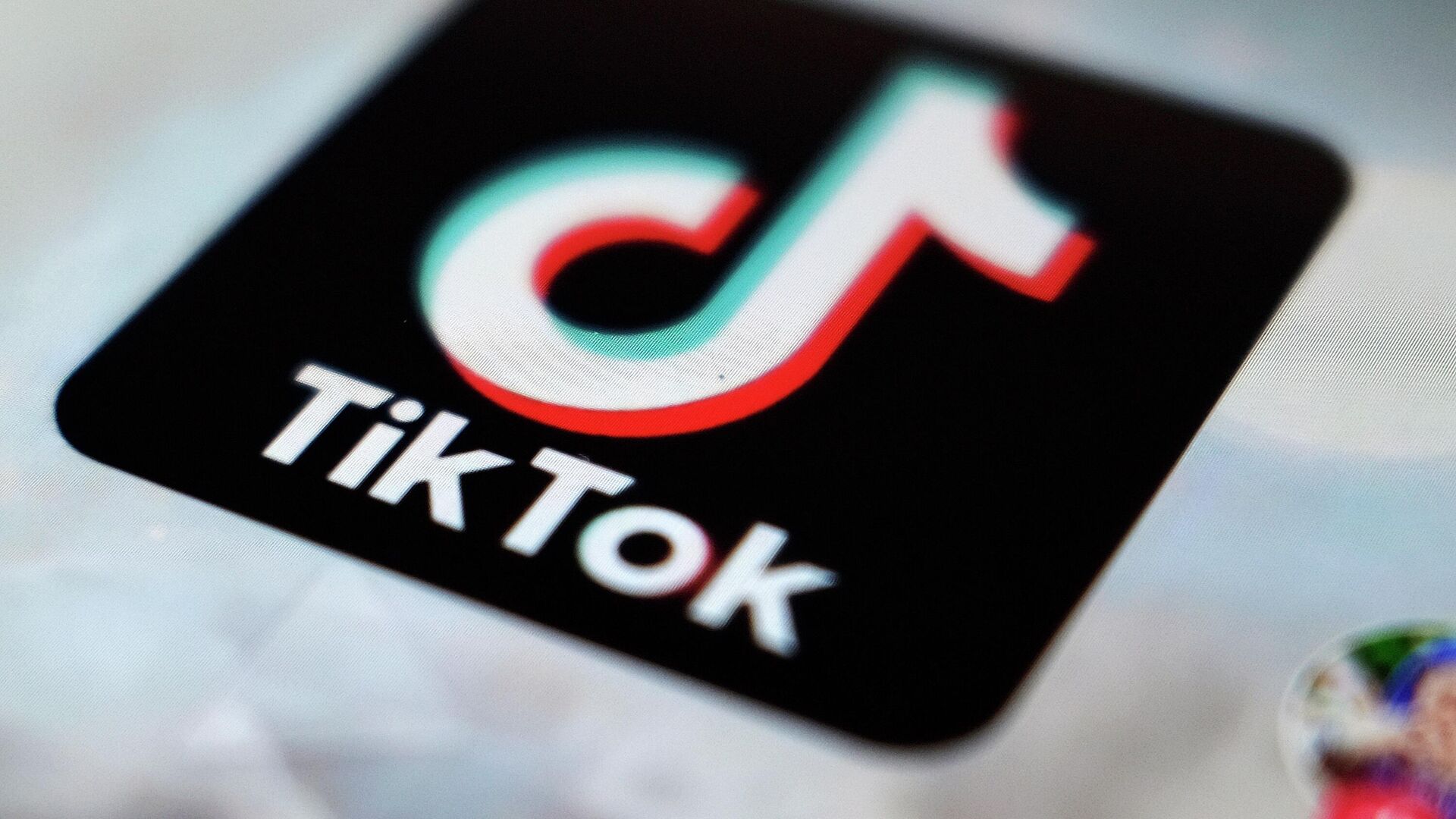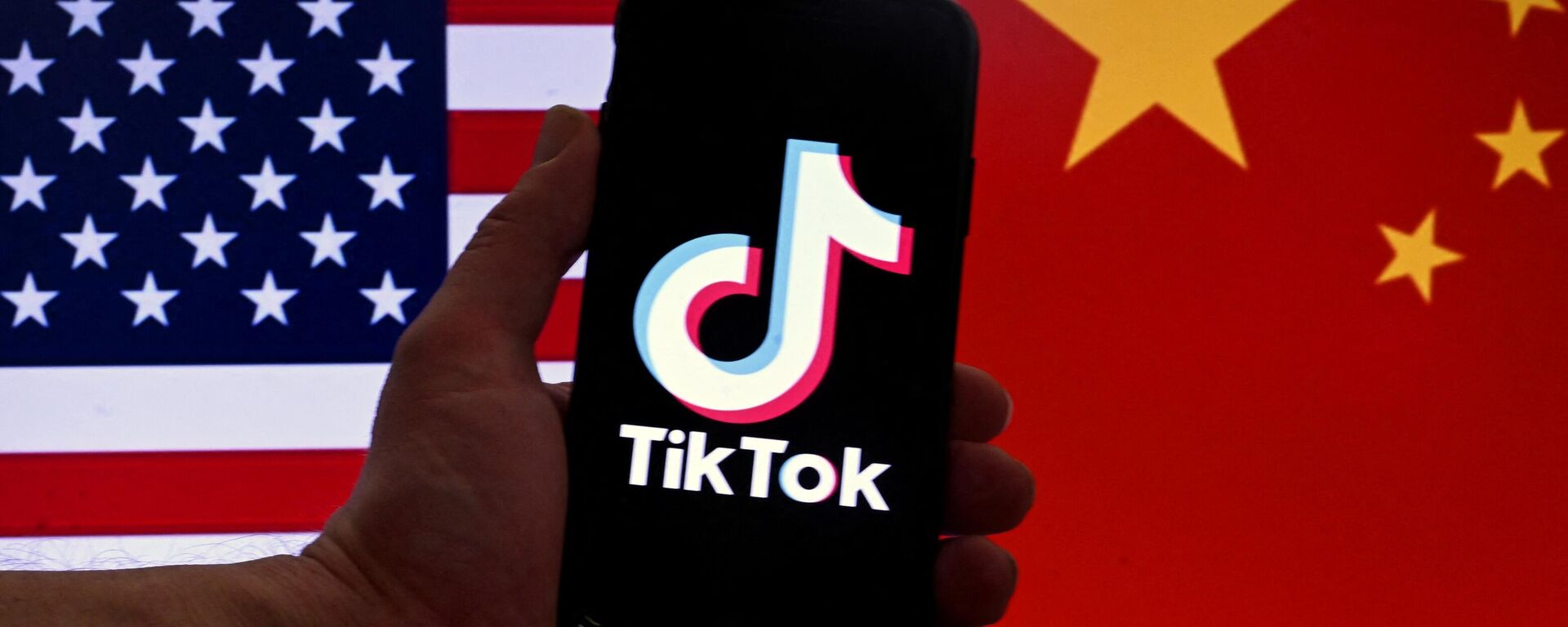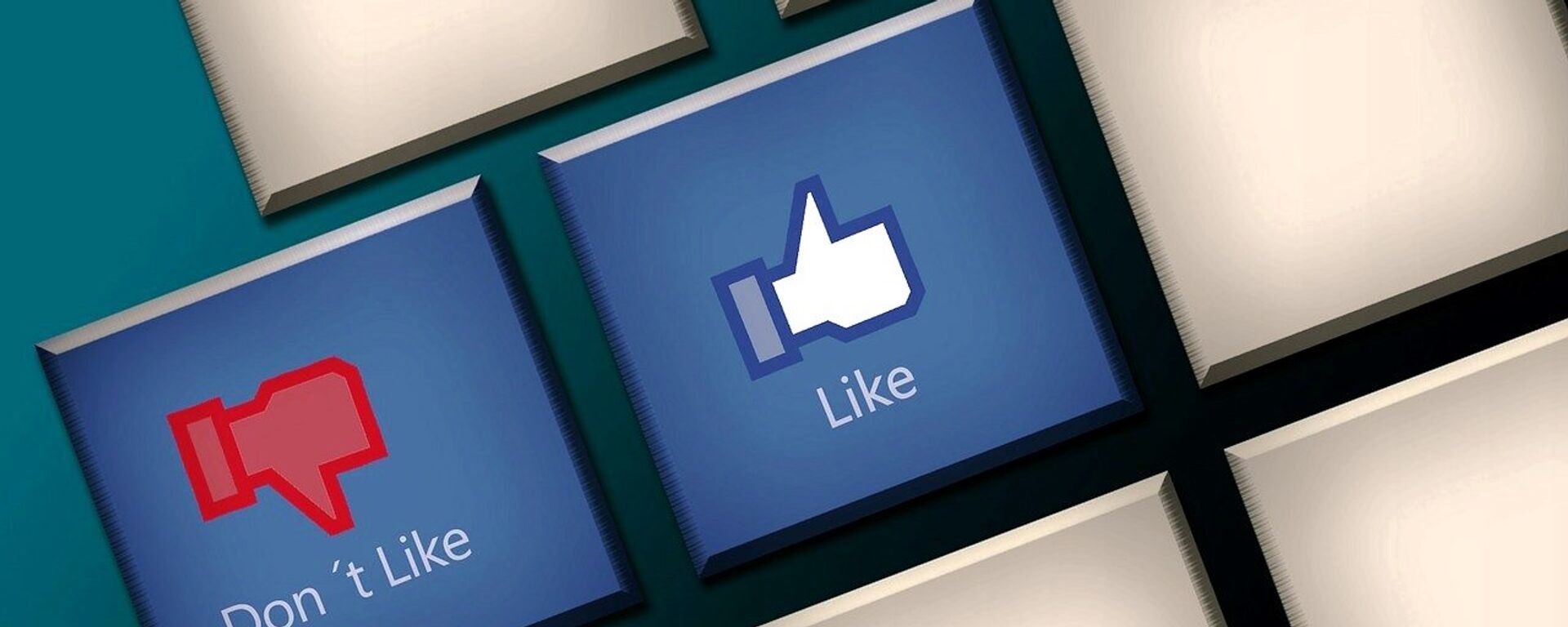https://sputnikglobe.com/20230523/montanas-tiktok-ban-not-enforceable-regardless-of-lawsuit-outcome-1110541386.html
Montana's TikTok Ban 'Not Enforceable' Regardless of Lawsuit Outcome
Montana's TikTok Ban 'Not Enforceable' Regardless of Lawsuit Outcome
Sputnik International
An attempt to ban users in the US state of Montana from accessing the TikTok social media app is sure to fail one way or another, a legal expert told Sputnik on Tuesday.
2023-05-23T15:33+0000
2023-05-23T15:33+0000
2023-05-23T19:51+0000
americas
tiktok
montana
bytedance
first amendment
ban
us
https://cdn1.img.sputnikglobe.com/img/07e6/08/14/1099786674_0:304:3000:1992_1920x0_80_0_0_43ee27e2eb94a72edbaa4711f9e4ec86.jpg
On Tuesday, TikTok announced it had filed a lawsuit against Montana’s recently-passed law banning the social media app from the US state starting on January 1, 2024. The suit argues that the law violates several aspects of the US Constitution, including the Commerce Clause, which blocks states from interfering with interstate trade, and the First Amendment, which protects the right to free speech.The law is just the latest attempt by US politicians to ban TikTok and other Chinese social media apps, which they have argued pose a security risk due to their supposed connections to the Communist Party of China. Beijing and TikTok owner ByteDance have both denied the accusations, and ByteDance has taken significant steps to separate the data of US-based TikTok users from the rest of its users in an attempt to assuage US critics.Barbara Lazarotto, a PhD researcher in law and a Marie Curie Actions fellow at Belgium’s Vrije Universiteit Brussel, told Sputnik on Tuesday that while the lawsuit’s outcome is unpredictable due to its legal complexities, the law is likely to be impossible to enforce nonetheless."The leadership of Montana will have a very hard task ahead of them. It is very difficult to enforce a ban on internet content since users might access it through VPN, which enables them to bypass any controls. Additionally, from the software perspective, at the moment it is not possible to ban the use of an app in a single state since app stores are divided by country. Therefore, Montana risks having a law that is not enforceable."Lazarotto pointed out that the US' claimed reason for wanting to ban TikTok - protecting the data of internet users from abuse by other entities - has long been known to be a universal problem, not just one limited to Chinese companies.One of the claims made in TikTok’s lawsuit is that an individual US state does not have the authority to pass laws that affect US national security, a concern in the purview of the federal government. Lazarotto said that Montana's attempt to do so only highlights the absence of such regulations at the federal level, for better or worse.."Montana’s argument is that the ban’s main objective is to protect the privacy and personal data of Montana’s citizens, in a similar interpretation to privacy laws which are sector-based. However, it is necessary to understand that the US Constitution - specifically the first amendment - protects speech and it will be a very interesting battle to watch."Binoy Kampmark, a senior lecturer in the School of Global, Urban and Social Studies at the Royal Melbourne Institute of Technology in Australia, echoed Lazarotto, noting the law “may well be unenforceable” or legally indefensible.“There is something to be said that the case against the ban is worth sustaining. For one, the measure may well be unenforceable, given the lack of capacity to enforce geofencing at the state level. It also says little about the way Montana's authorities can possibly enforce the ban, given that users can resort to virtual private networks (VPNs) in accessing TikTok,” Kampmark told Sputnik.In addition, Kampmark noted that Montana could only enforce the $10,000 daily fine “with difficulty.”The RMIT lecturer pointed out that such a vast amount of generated data is inherently unsafe, but that “all companies dealing in the area of personal data, and data generated by users, engage in surveillance capitalism.”He noted that US concerns about data security regarding TikTok are “a bit rich, given that US tech companies are themselves hardly capable of securing the data they transmit through their servers regarding users in certain jurisdictions.”“The fact that Meta has been fined by the Irish Data Protection Authority for 1.2 billion Euros for violating the GDPR shows that this is a field peppered with hypocrisy. That said, the US executive and congress are on the hunt for options, and having states like Montana go it alone is not likely to solve anything … the Montana law may well be stepping into jurisdiction best left to federal regulators and not usurped at the state level in US law. The fact that a state is taking such a measure can, in terms of acceptable legal process in the US, overstep the mark.”
https://sputnikglobe.com/20230327/lawmakers-to-move-ahead-with-tiktok-bill-to-protect-americans-from-chinas-technological-tentacles-1108815947.html
https://sputnikglobe.com/20230522/ireland-hands-meta-12-billion-fine-for-sending-european-user-data-to-us-1110514403.html
americas
montana
Sputnik International
feedback@sputniknews.com
+74956456601
MIA „Rossiya Segodnya“
2023
News
en_EN
Sputnik International
feedback@sputniknews.com
+74956456601
MIA „Rossiya Segodnya“
Sputnik International
feedback@sputniknews.com
+74956456601
MIA „Rossiya Segodnya“
tiktok; ban; lawsuit; bytedance; montana, montana bans tiktok, why montana banned tiktok, why tiktok should be banned, who wants to ban tiktok, is tiktok spying for china, is tiktok spying on americans, montana sued for banning tiktok
tiktok; ban; lawsuit; bytedance; montana, montana bans tiktok, why montana banned tiktok, why tiktok should be banned, who wants to ban tiktok, is tiktok spying for china, is tiktok spying on americans, montana sued for banning tiktok
Montana's TikTok Ban 'Not Enforceable' Regardless of Lawsuit Outcome
15:33 GMT 23.05.2023 (Updated: 19:51 GMT 23.05.2023) An attempt to ban users in the US state of Montana from accessing the TikTok social media app is sure to fail one way or another, a legal expert told Sputnik on Tuesday.
On Tuesday, TikTok announced it had filed a lawsuit against Montana’s recently-passed law
banning the social media app from the US state starting on January 1, 2024. The suit argues that the law violates several aspects of the US Constitution, including the Commerce Clause, which blocks states from interfering with interstate trade, and the First Amendment, which protects the right to free speech.
The law is just the latest attempt by US politicians to ban TikTok and other Chinese social media apps, which they have argued pose a security risk due to their supposed connections to the Communist Party of China. Beijing and TikTok owner ByteDance have both denied the accusations, and ByteDance has taken significant steps to separate the data of US-based TikTok users from the rest of its users in an attempt to assuage US critics.
Barbara Lazarotto, a PhD researcher in law and a Marie Curie Actions fellow at Belgium’s Vrije Universiteit Brussel, told Sputnik on Tuesday that while the lawsuit’s outcome is unpredictable due to its legal complexities, the law is likely to be impossible to enforce nonetheless.
"I believe the outcome of this case is unpredictable, due to the complexity of the case which evolves apart from a legal (and constitutional) analysis, a geopolitical and societal one. Users are already protesting against the ban at the same time the world is already settled in a cold war against Chinese tech companies," he said.
"The leadership of Montana will have a very hard task ahead of them. It is very difficult to enforce a ban on internet content since users might access it through VPN, which enables them to bypass any controls. Additionally, from the software perspective, at the moment it is not possible to ban the use of an app in a single state since app stores are divided by country. Therefore, Montana risks having a law that is not enforceable."
Lazarotto pointed out that the US' claimed reason for wanting to ban TikTok - protecting the data of internet users from abuse by other entities - has long been known to be a universal problem, not just one limited to Chinese companies.
"After the Cambridge Analytica scandal with Facebook and the [Edward] Snowden case, governments are already aware of the fact that companies indeed share data with other parties, and even with other governments,” he said. “The discussion is that United States politicians do not want data from Americans to be shared with the Chinese government. TikTok, like all other data processors, must comply with data protection rules, such as the GDPR [General Data Protection Regulation] in the EU [European Union], therefore, it is through enforcement of data protection laws that the company will be forced to protect user’s data."
One of the claims made in TikTok’s lawsuit is that an individual US state does not have the authority to pass laws that affect US national security, a concern in the purview of the federal government. Lazarotto said that Montana's attempt to do so only highlights the absence of such regulations at the federal level, for better or worse..
"I believe that the United States is now facing the fact that a state-based fragmented technology regulation is not suitable for enforcement. In that case, national laws are more suitable to enforce and also from the economic perspective for tech companies - something that President Biden already has expressed. However, giving a president the power to ban or restrict a foreign application, in my opinion, is a dangerous tool that can become anti-democratic. Yet, I believe that the Tiktok controversy will bring these discussions to the table."
"Montana’s argument is that the ban’s main objective is to protect the privacy and personal data of Montana’s citizens, in a similar interpretation to privacy laws which are sector-based. However, it is necessary to understand that the US Constitution - specifically the first amendment - protects speech and it will be a very interesting battle to watch."
Binoy Kampmark, a senior lecturer in the School of Global, Urban and Social Studies at the Royal Melbourne Institute of Technology in Australia, echoed Lazarotto, noting the law “may well be unenforceable” or legally indefensible.
“There is something to be said that the case against the ban is worth sustaining. For one, the measure may well be unenforceable, given the lack of capacity to enforce geofencing at the state level. It also says little about the way Montana's authorities can possibly enforce the ban, given that users can resort to virtual private networks (VPNs) in accessing TikTok,” Kampmark told Sputnik.
“There are also technical issues that may work in favor of the suit. For one Montana's ban not only violates the Constitution by limiting the company's right to host and distribute user content; it could also be argued that the state is intruding into national security areas traditionally the sphere of federal regulators. In doing so, the argument is that this measure impinges on interstate business,” he added.
In addition, Kampmark noted that Montana could only enforce the $10,000 daily fine “with difficulty.”
“There is no clear notion yet as to how such a policy of fines, be it terms of imposition and enforcement, can be enforced at the state level in the US against such foreign entities,” he explained.
The RMIT lecturer pointed out that such a vast amount of generated data is inherently unsafe, but that “all companies dealing in the area of personal data, and data generated by users, engage in surveillance capitalism.”
“TikTok, for its part, has launched the Project Texas initiative, which is designed to combat claims that the Chinese government is purportedly harvesting the data of US citizens and spying on them. The initiative, launched in collaboration with the Austin-based software company Oracle, is intended to keep the data of US users stored on US servers and overseen by a US team,” he explained. “But one does not have to accept the contention by TikTok and its analogues to appreciate that Big Tech and Silicon Valley do the same. Data is not safe when generated in such vast quantities.”
He noted that US concerns about data security regarding TikTok are “a bit rich, given that US tech companies are themselves hardly capable of securing the data they transmit through their servers regarding users in certain jurisdictions.”
“The fact that Meta has been fined by the Irish Data Protection Authority for 1.2 billion Euros for violating the GDPR shows that this is a field peppered with hypocrisy. That said, the US executive and congress are on the hunt for options, and having states like Montana go it alone is not likely to solve anything … the Montana law may well be stepping into jurisdiction best left to federal regulators and not usurped at the state level in US law. The fact that a state is taking such a measure can, in terms of acceptable legal process in the US, overstep the mark.”




